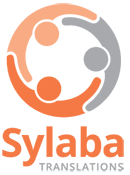In today’s interconnected and diverse world, effective communication is essential for fostering understanding, sharing information, and driving progress. However, not everyone has equal access to communication channels, which can lead to exclusion and inequality. This is where the role of government initiatives for inclusive communication becomes crucial. We will delve into the importance of inclusive communication, the initiatives governments are taking to promote it, and the impact of these efforts on multicultural communities.
Understanding Inclusive Communication
Inclusive communication goes beyond simply conveying information; it aims to ensure that everyone, regardless of their abilities, language, or background, can participate in the conversation. It recognises the challenges faced by minority groups, such as people with disabilities, multicultural communities, and those with limited access to technology. By promoting accessibility and breaking down barriers, inclusive communication benefits not only individuals but also society by fostering social cohesion and economic growth.
Government Initiatives for Inclusive Communication
- National-Level Initiatives: Governments around the world are recognizing the importance of inclusive communication and are taking legislative measures to enforce accessibility and non-discrimination. These efforts include passing laws that mandate the provision of accessible information and communication for all citizens.
- Case Study: [Country/Region]: Taking a closer look at a specific country or region, we analyze the initiatives, laws, and programs in place to ensure inclusive communication. We also examine the impact of these measures on marginalized communities and their overall societal integration.
- Public-Private Collaboration: Many governments are partnering with the private sector to amplify the reach of inclusive communication efforts. Public-private partnerships aim to leverage the expertise and resources of both sectors to create a more accessible and equitable communication landscape.
Inclusive Communication in Education
Education is a cornerstone of any inclusive society. Government initiatives are pushing for the integration of inclusive communication practices in the education system, ensuring that all students, including those with disabilities, have equal access to learning materials and technologies. Scholarships, grants, and assistive devices are being provided to ensure that students with disabilities can pursue their education without barriers.
Digital Inclusion and Accessible Technology
With the digital age in full swing, governments are recognizing the importance of digital inclusion. Initiatives are aimed at bridging the digital divide by providing internet connectivity, subsidies for technology, and digital devices to underserved communities. Moreover, governments are enforcing web accessibility standards to ensure that online platforms are usable by everyone.
Inclusive Communication in Healthcare Services
Effective communication is vital in healthcare settings. Governments are introducing regulations to ensure that patient information is available in multiple formats, including braille and sign language. Access to medical interpreters and communication assistance is being facilitated, particularly for marginalized communities. Telehealth services are also being expanded to provide medical care to remote and underserved areas.
Monitoring, Evaluation, and Future Directions
To ensure the effectiveness of these initiatives, mechanisms for monitoring and evaluating their impact are essential. Data collection, analysis, and feedback from multicultural communities play a pivotal role in refining and adapting these initiatives. As technology continues to evolve, governments must remain adaptable and forward-thinking in their approach to inclusive communication.
Multilingual Government Services
Multilingual government services refer to government initiatives and programs that provide information, assistance, and services to citizens in multiple languages. The goal of these services is to ensure that all members of a diverse and multicultural society have equal access to government resources and support, regardless of their language proficiency.
Here are some key points and benefits associated with multilingual government services:
- Inclusivity: Multilingual services promote inclusivity and help reach populations with different language backgrounds, including immigrants, refugees, and linguistic minorities. This ensures that everyone can understand their rights, and responsibilities, and access public services.
- Effective Communication: Providing information in people’s native languages ensures better comprehension and accurate communication. This is crucial when disseminating important information about public health, safety, legal matters, social programs, and more.
- Access to Services: Many government services are essential for citizens’ well-being, including healthcare, education, social support, and legal aid. Offering these services in multiple languages removes language barriers that might otherwise prevent people from accessing the help they need.
- Compliance with Language Laws: In countries with diverse language populations, there may be laws or regulations that mandate the provision of government information and services in multiple languages. Complying with these laws is essential for upholding linguistic rights and maintaining social harmony.
- Integration and Participation: Multilingual services can facilitate the integration of newcomers into society by providing them with the tools to navigate their new environment. When individuals can fully engage with their community and access services, it fosters a sense of belonging and encourages active participation.
- Emergency Situations: During emergencies, such as natural disasters or health crises, it’s vital to communicate critical information quickly and accurately to all citizens. Multilingual services ensure that no one is left uninformed during these situations.
- Reducing Miscommunication: Language barriers can lead to misunderstandings, misinterpretations, and misinformation. Providing information in multiple languages reduces the chances of miscommunication and helps citizens make informed decisions.
- Cultural Sensitivity: Multilingual services demonstrate cultural sensitivity and respect for diversity. This enhances the government’s reputation and builds trust among different linguistic communities.
- Economic Benefits: By ensuring that all citizens can access government services and participate fully in society, multilingual services contribute to economic growth and social cohesion.
- Language Preservation: In regions with indigenous or minority languages, offering services in those languages can play a role in language preservation and revitalization efforts.
To implement effective multilingual government services, governments might employ strategies such as translating official documents, providing interpretation services, offering language-specific hotlines, and ensuring that government websites and communication materials are available in multiple languages.
Conclusion
Inclusive communication is not just a luxury; it’s a fundamental right that governments are working hard to uphold. Through legislative measures, partnerships with the private sector, and interventions in education and healthcare, governments are paving the way for a more inclusive society. However, the journey is far from over. It’s up to all of us to support and advocate for these initiatives, ensuring that communication remains a bridge that unites us all, regardless of our differences. By working together, we can create a future where everyone’s voice is heard, understood, and valued.
Related Posts

Get a quote today
"*" indicates required fields
Subscribe today to receive the latest insights and updates from Sylaba Translations










